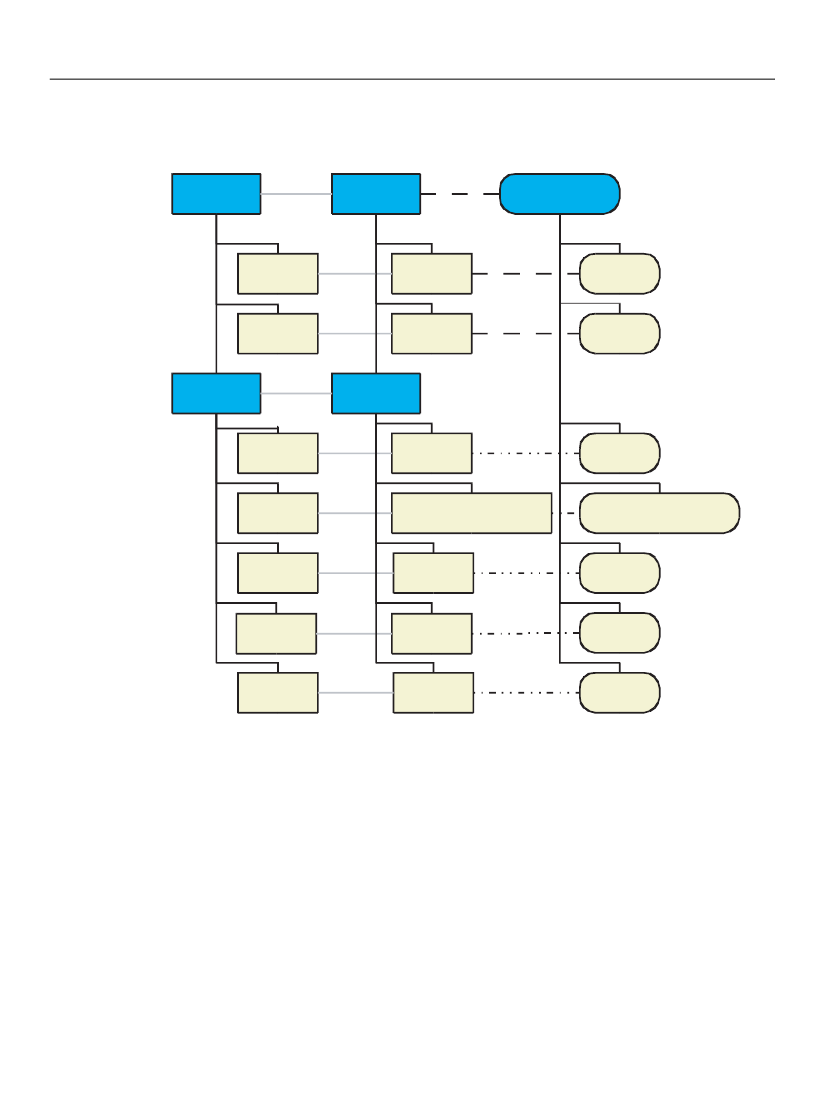
Chapter 4, Exchanging Data Between an External Application
and a Basic XFA Form
XFA Specification
Basic Data Binding to Produce the XFA Form DOM
164
Template DOM
registration
Form DOM
registration
Data DOM
registration
first
first
“Jack”
last
“Spratt”
first
“Jack”
last
“Spratt”
last
address
address
apt
apt
“”
street
“99 Candlestick Lane”
city
“London”
country
“UK”
postalcode
“SW1”
apt
“”
street
“99 Candlestick Lane”
city
“London”
country
“UK”
postalcode
“SW1”
street
city
country
postalcode
Result of registration binding with template changed
In the above example, the data description is not consulted during data binding because a match is found.
The data description is only consulted during data binding when there is no match of any kind for the
current form node.
Scope matches have been defined to allow changes to be made to the template without requiring
changes to the data (data independence). Note, however, that this is not symmetrical; if the data changes
probably the template will have to change. This is because fields in subforms can match data values at a
higher level, but data values in data groups can not match fields at a higher level. The principle involved is
that structure in the template is often not meaningful but structure in the data is usually meaningful.
Forms with Non-Unique Names
It is legal for forms and data to use the same names in different contexts. For example a field in one
subform may have the same name as a field in a different subform. The two fields represent quite